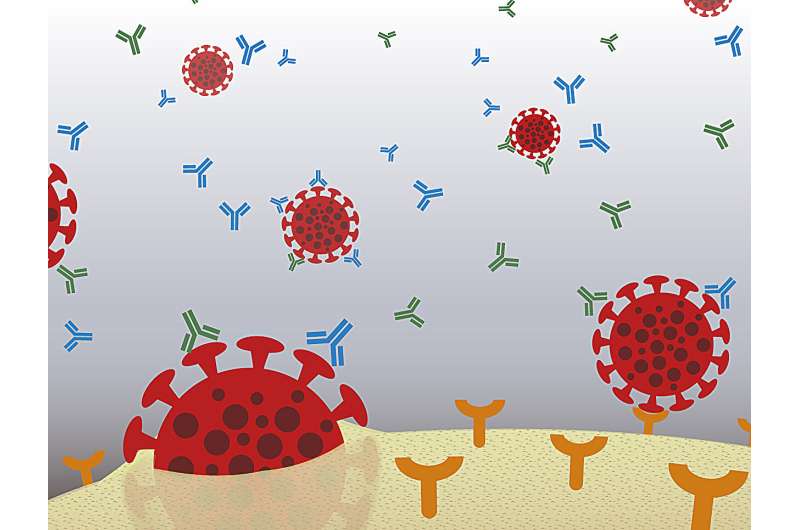This article has been reviewed according to Science X's editorial process and policies. Editors have highlighted the following attributes while ensuring the content's credibility:
fact-checked
peer-reviewed publication
trusted source
proofread
Your reaction matters: The role of antibodies in COVID-19 response

Efforts to contain the COVID-19 pandemic have largely focused on vaccine development and deployment. But how exactly do our immune systems respond to COVID-19 vaccines? The major response occurs in one of two ways: the production of antibodies that bind to the receptor-binding domain (RBD) or the production of antibodies that bind to the N-terminal domain (NTD) of the coronavirus viral spike protein.
Both play important roles in preventing infection, pathogenesis, and severe disease. However, the antibody repertoire varies widely among individuals. While it has been suggested that this diversity in antibodies influences the ability to protect against mutant strains, its full extent has not been clear.
A research team led by Associate Professor Mayo Yasugi of the Graduate School of Veterinary Science at Osaka Metropolitan University has gained insight into the role of antibodies produced by vaccination in preventing infections, particularly in mutant strains of the coronavirus. The study focused on blood samples taken from volunteers 17 to 28 days post-2nd vaccination, a crucial period when antibody production peaks.
Their findings were published in Vaccine.
By examining the repertoire of antibodies produced by each individual, the researchers showed that antibodies could be categorized into three types, each targeting distinct regions of the viral spike protein, a key component of the vaccine antigen.
Furthermore, the study found that antibodies that primarily target NTD have a lower ability to protect against a delta variant of the coronavirus compared to those primarily targeting RBD. Interestingly, the study also found that the presence or absence of infectivity-enhancing antibodies did not affect the ability of the antibodies to protect against variants.
"The results of this study have demonstrated that understanding the nuances of antibody response to vaccination is critical for vaccine development," said Professor Yasugi. "We believe our findings will provide a foundation for improved vaccine development in the future."
More information: Mayo Yasugi et al, Characteristics of epitope dominance pattern and cross-variant neutralisation in 16 SARS-CoV-2 mRNA vaccine sera, Vaccine (2023). DOI: 10.1016/j.vaccine.2023.08.076




















